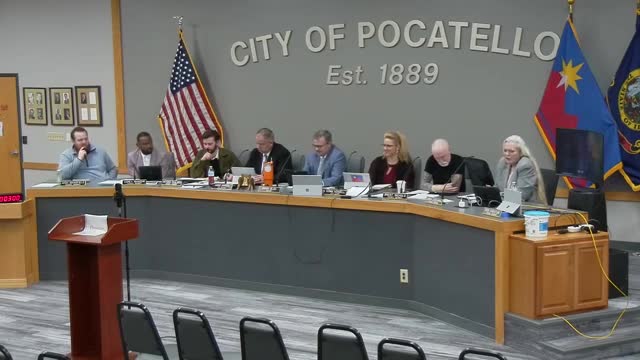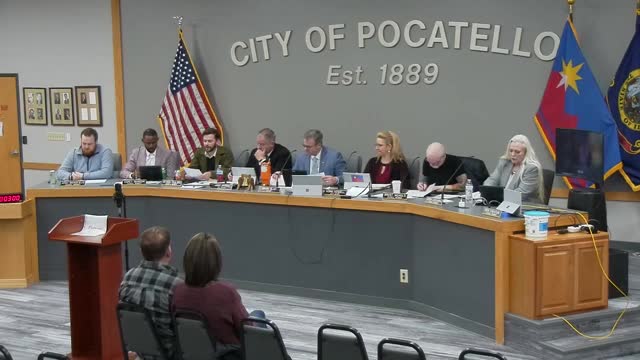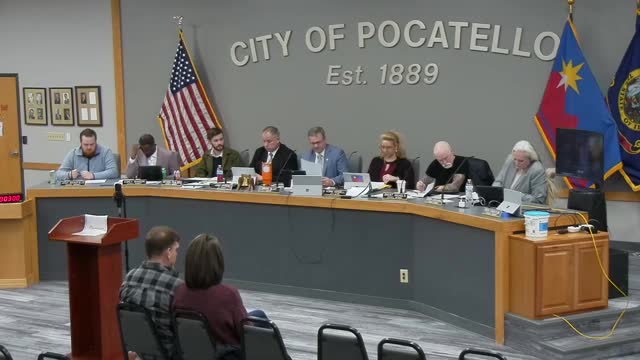Article not found
This article is no longer available. But don't worry—we've gathered other articles that discuss the same topic.

Pocatello council approves transit grants, skate park donation, water projects and several procurement items

Pocatello proclaims March as Senior Nutrition Program Month; local center reports rising meals served

